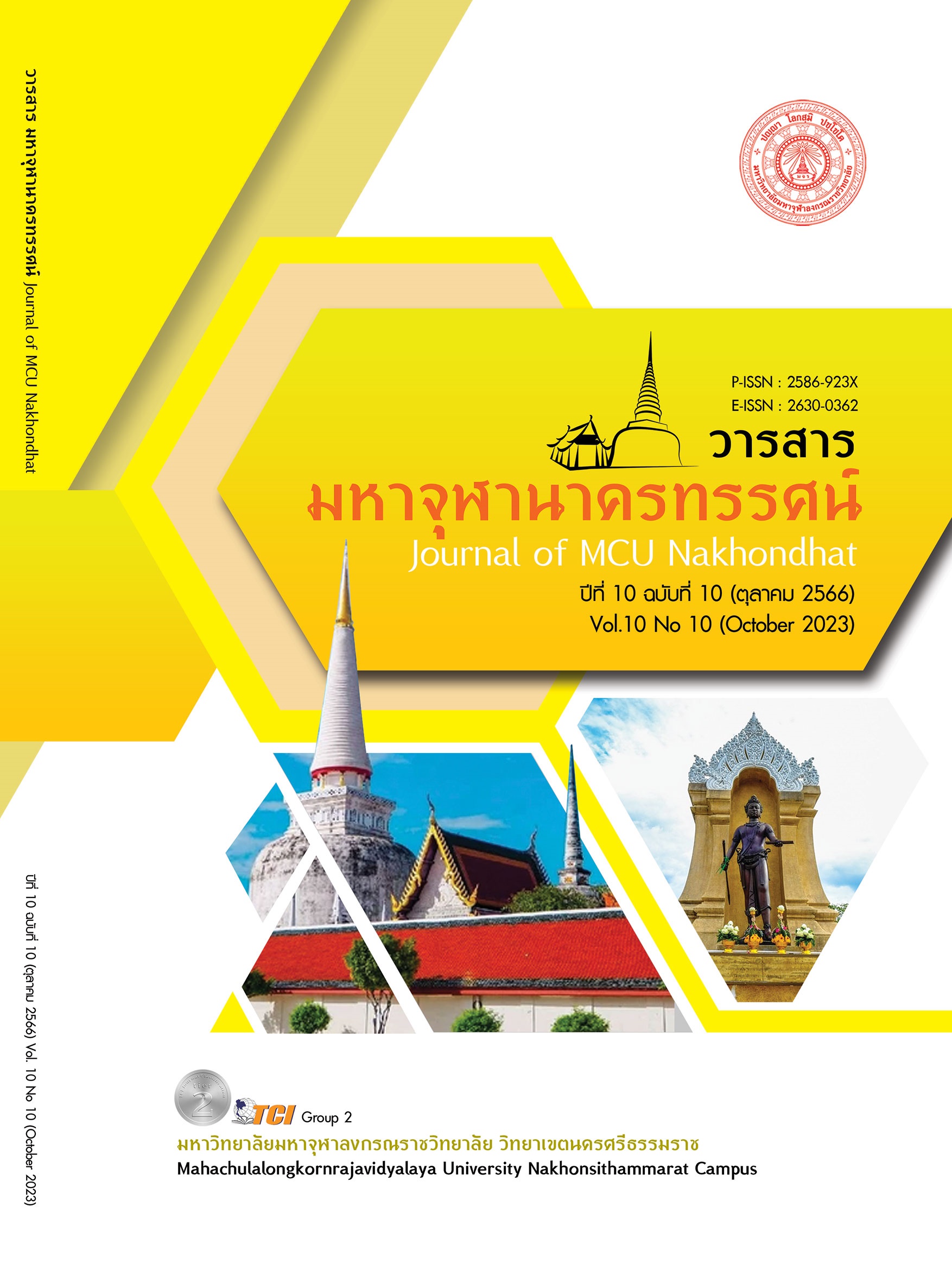SMART CITY DESIGN AND DEVELOPMENT BASED ON INFORMATION TECHNOLOGY CONCEPTS
Main Article Content
Abstract
The purpose of this academic article is to present the results of the study of smart city design and development based on information technology concepts. It is a document research by selecting relevant documents.The method by interpretation and synthesis of factual information according to Scott's guidelines using the following criteria: 1) be accurate 2) be reliable 3) is representative and 4) is clear. The results of the study found that in developing a smart city, it is necessary to develop it to cover all 7 aspects, consisting of 1) smart environment, 2) smart travel and transportation. 3) Smart Living, 4) Smart Citizens, 5) Smart Energy, 6) Smart Economy, and 7) Smart public administration. The dimension of smart city development by using information technology to be applied in development in 9 dimensions, including 1) smart cities in education by organizing education and developing educational innovations 2) smart health cities promoting prevention and taking care of public health through the use of medical development technology. 3) smart cities for quality of life, society and community by managing the community and creating systematic participation in the community. 4) smart city safety It is the application of information technology in prevention, watch out for crimes and various dangers. 5) smart cities for public administration by applying information technology to develop public service systems. 6) smart cities for the environment by systematically managing the safety of life and property of local people. 7) smart economic cities by applying information technology to develop and promote the economic system. 8) smart city in terms of transportation by developing transportation systems in the area and 9) energy smart city by developing community energy systems
Article Details

This work is licensed under a Creative Commons Attribution-NonCommercial-NoDerivatives 4.0 International License.
References
ดวงตา สราญรมย์. (2566). แบบจําลองการพัฒนาเมืองอัจฉริยะสําหรับรองรับการเข้าสู่สังคมผู้สูงอายุ. วารสารศรีปทุมปริทัศน์ ฉบับมนุษยศาสตร์และสังคมศาสตร์, 23(1),78 - 91.
ธัญญานุภาพ อานันทนะ. (2566). พัฒนาเมืองด้วยนวัตกรรม. เชียงใหม่: อุทยานวิทยาศาสตร์และเทคโนโลยี มหาวิทยาลัยเชียงใหม่.
นิรมล เสรีสกุล. (2566). เมืองที่เดินได้คือเมืองที่มีอนาคต. กรุงเทพมหานคร: คณะสถาปัตยกรรมศาสตร์ จุฬาลงกรณ์มหาวิทยาลัย.
ปัทมา เธียรวิศิษฎ์สกุล. (2566). เมืองที่ไม่ทอดทิ้งใครไว้ข้างหลัง. กรุงเทพมหานคร: สภาพัฒนาการเศรษฐกิจและสังคมแห่งชาติ.
พันธวัฒน์ เศรษฐวิไล. (2566). โลกใหม่ เมืองแบบใหม่ พัฒนาเมืองอย่างไรในโลก 4.0. เรียกใช้เมื่อ 10 กรกฎาคม 2566 จาก https://www.the101.world/futurising-thailand
ฤทัยชนก เมืองรัตน์. (2566). เมืองอัจฉริยะ : การพัฒนาเมืองยุค 4.0. กรุงเทพมหานคร: สำนักงานเลขาธิการสภาผู้แทนราษฎร.
สถาบันพระปกเกล้า. (2563). รายงานสถานการณ์การกระจายอํานาจประจําปี พ.ศ. 2562. กรุงเทพมหานคร : สถาบันพระปกเกล้า.
สำนักงานคณะกรรมการพัฒนาเศรษฐกิจและสังคมแห่งชาติ. (2560). ยุทธศาสตร์ชาติ ระยะ 20 ปี (พ.ศ. 2560 - 2579). กรุงเทพมหานคร: สำนักงานคณะกรรมการพัฒนาเศรษฐกิจและสังคมแห่งชาติ.
สำนักงานส่งเสริมเศรษฐกิจดิจิทัล กระทรวงดิจิทัลเพื่อเศรษฐกิจและสังคม. (2560). การส่งเสริมเมืองอัจฉริยะ. กรุงเทพมหานคร: กระทรวงดิจิทัลเพื่อเศรษฐกิจและสังคม.
สุริยนต์ ธัญกิจจานุกิจ. (2566). การพัฒนาเมืองกับการพัฒนาขีดความสามารถการแข่งขัน. กรุงเทพมหานคร: สภาพัฒนาการเศรษฐกิจและสังคมแห่งชาติ.
Bangkok Bank Inno Hub. (2566). 5 smart city technology (Smart City) that can raise the quality of life in Bangkok. Retrieved March 10 , 2566, from https://www.bangkokbankinnohub.com.
Glasmeier, A. & Christopherson, S. (2015). Thinking about smart cities. Cambridge Journal of Regions Economy and Society, 8(1), 3 - 12.


